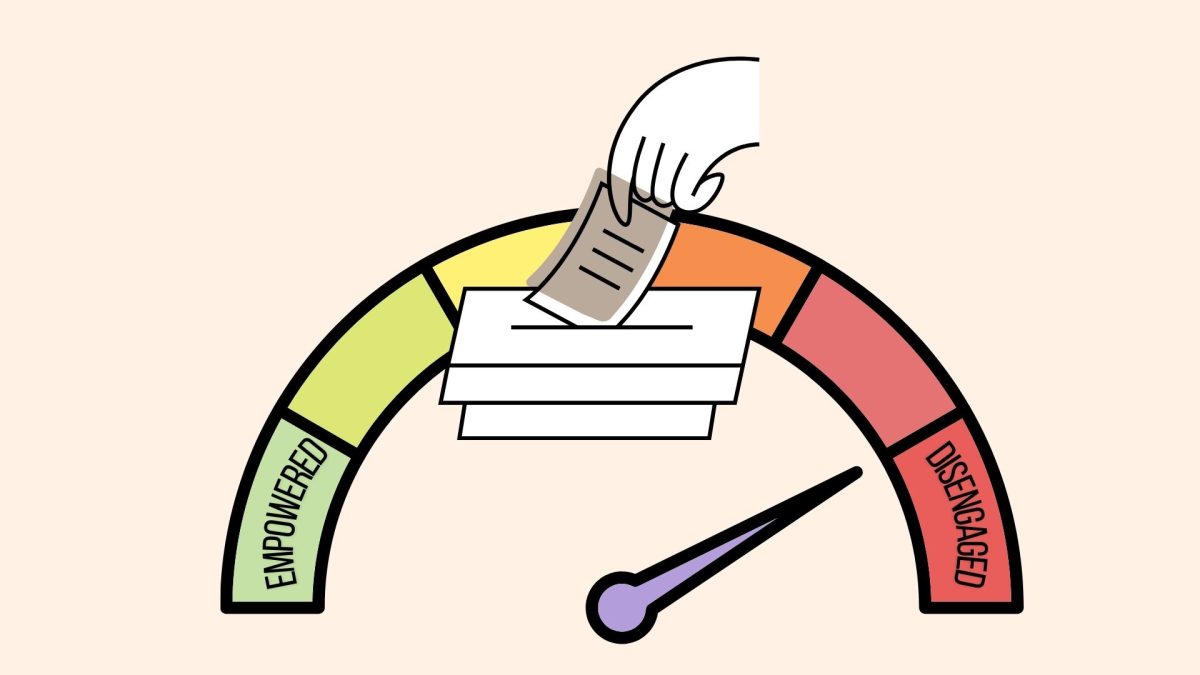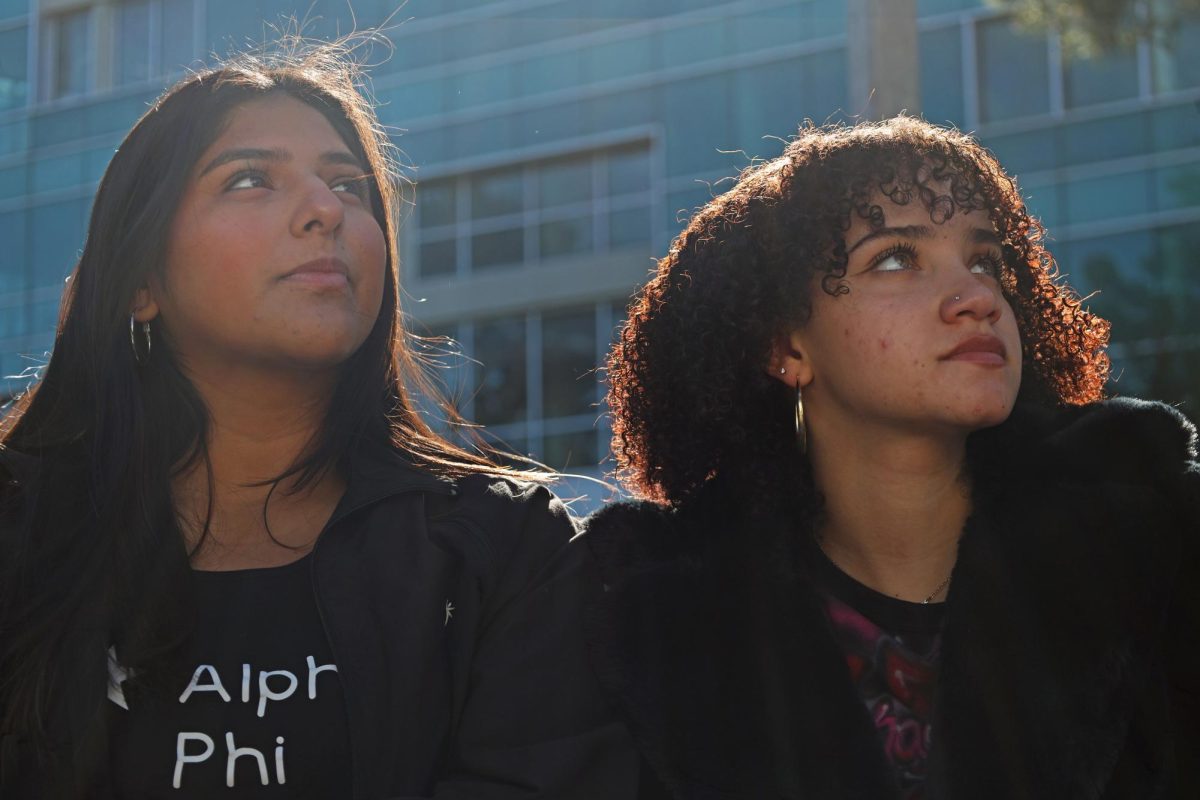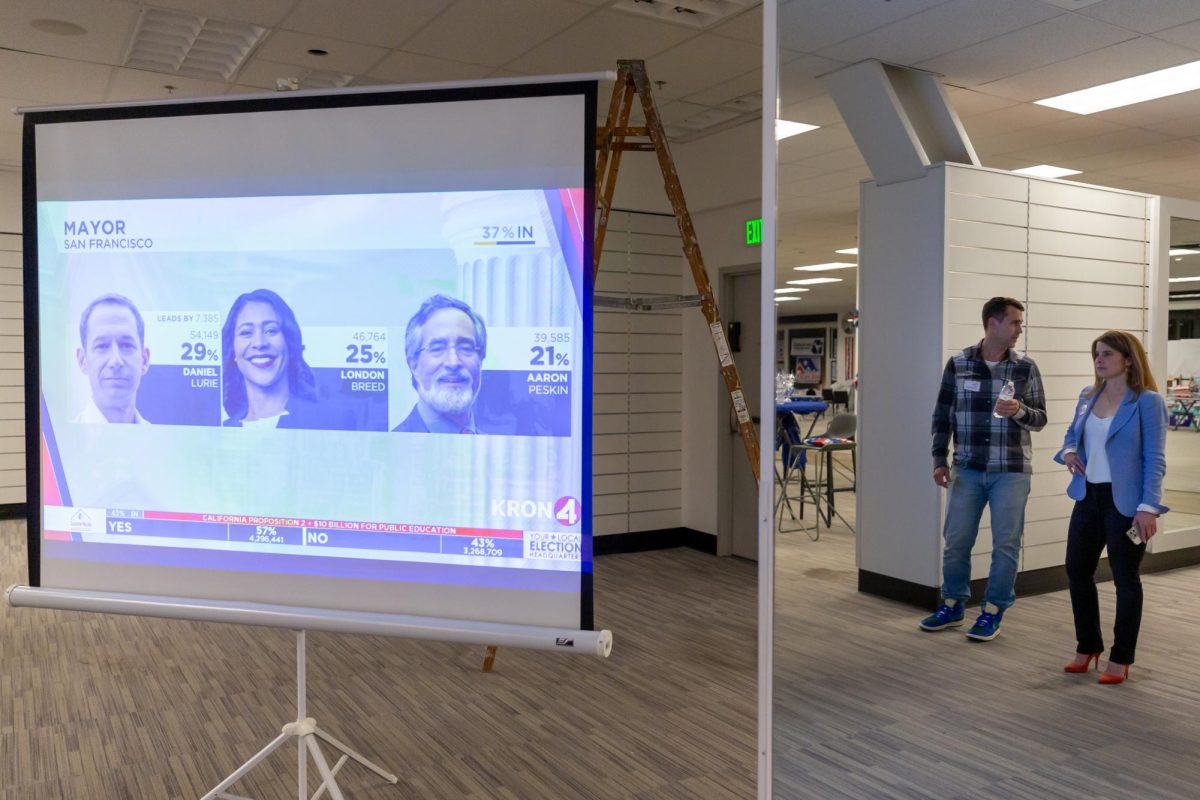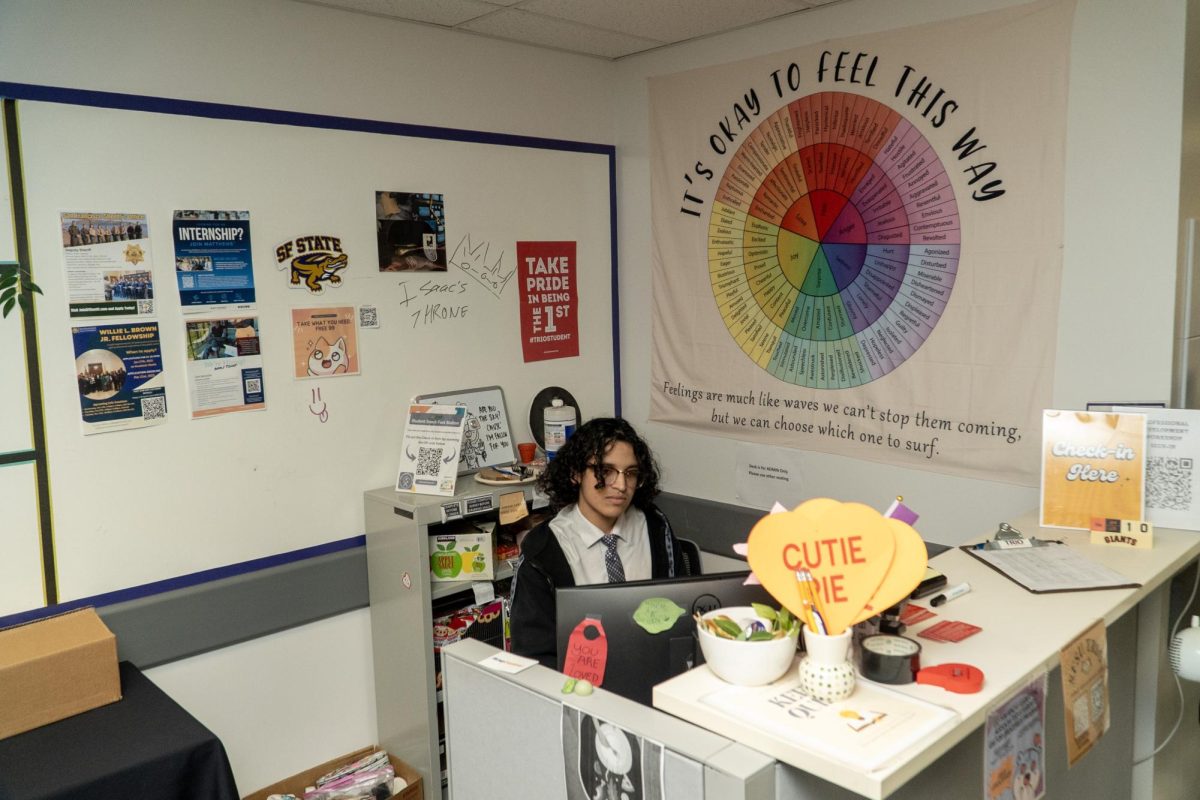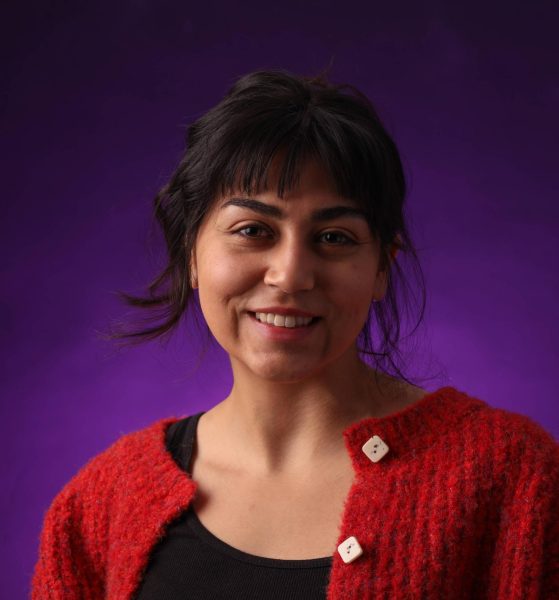With less than two weeks until the presidential election, San Francisco State University students expressed lukewarm enthusiasm for either party or campaign for the next four years, according to interviews conducted by Golden Gate Xpress.
Dominic Ailleo, an SFSU counseling graduate student, feels unmoved about his predetermined voting decisions and purpose as a voter.
“People already know who they’re voting for,” Ailleo said. “California will vote blue so my vote really doesn’t count.”
Potentially the most determining and memorable election of a young person’s life can become underwhelming if the candidates presented don’t fulfill initial expectations. With a divided democracy, individuals hold less concern for who wins and more concern for the chance at a brighter future.
A Pew Research Center article that studied Americans’ outlook on the nation and its future revealed that 58% of people say life is worse for them than 50 years ago. According to the study, young people between ages 18 to 34 have less confidence in the future than those ages 35 to 49.
Yogi Sylvain, a humanities student, watched the Oct. 1 vice presidential debate and said he was disappointed about both JD Vance and Tim Walz’s performance.
“I thought Walz was the progressive choice but that wasn’t proven,” Sylvain said. “They both need to be focused on de-escalating the [Middle East] situation, ending arm sales to Israel.”
Another debate viewer, Anika Furgan, found that the “constructive speech” between the nominees helped determine her support. She believes that immigration issues would be best handled under Republican policies.
“[Immigration] was better under Trump’s office,” said Furgan, an SFSU alum. “There are like 3000 kids missing and some in sex trafficking. It’s interesting that Kamala didn’t explore any of the Southern border, except the safest parts.”
According to the United States Government’s Administration for Children and Families website, eligibility letters for child trafficking victims rose from 334 letters in 2016 to 2,148 letters in 2023. An eligibility letter certifies a minor as a victim and allows them to receive monetary, medical and food benefits among others.
However, some voters who started voting years before the 2024 election season, feel the need to vote out of necessity rather than privilege.
English literature major Isobel Senhaji, who preregistered to vote in high school, said her early political involvement encouraged her pride in voting. This year, Senhaji feels “jaded” about the election and doesn’t think the nation’s polarization helps Americans.
“I don’t feel overly excited to practice this civic duty,” she said. “A lot of the time it just feels like I’m voting for a lesser of two evils.”
This also rings true for Kiara Gomez, who values the rights of women and immigrants. Gomez has long since found a candidate who aligns with these values but is still worried about how the election’s outcome will affect her family.
“My parents are undocumented and you know, those things, like policies, can affect my family,” said Gomez, a liberal studies student.
The future still hangs in limbo because politicians may not carry out their promised actions on policies. When examining how people thought about politics, a Pew Research Center survey found that 65% were always or mostly exhausted, 55% were angry and only 10% were hopeful.
According to the study, such exhaustion and anger in Americans feel that “lobbyists and special interests hold too much sway in politics, that presidential elections last too long and cost too much, and that both Republicans and Democrats are more focused on fighting each other than on solving the nation’s problems.”
Marisa Jimison, an SFSU Transfer Support Coordinator, said she hopes for the best in November’s election but understands why people expect the worst.
“I think it’s a mixed bag,” Jimison said. “I feel like a lot of people are worried and stressed out about it. And then a lot of people are also checking out, not wanting to stress themselves out so they haven’t really been keeping up with politics or current events in the country. It’s concerning to not consider it.”
Rather than feed into hopelessness about the state of modern politics, Margaret Pinter, an SFSU alumna who graduated in 1981 and currently works as an SFSU library bookstore volunteer, finds peace in the fact that no single candidate is going to check her every box.
“It’s funny right now because kids will say they’re not voting because of this or that,” she said. “And I’m thinking, can I tell you how many times the person I voted for got elected? Not all that often.”
Pinter instead says she finds her hope in remaining loyal to one party and trusting the process.
“If you change your vote every time based on one thing somebody says, you just end up with nothing,” she said.
Senhaji, who also volunteers with HeadCount which is a non-profit organization promoting involvement in democracy, says she is “empowered to vote” for her selected candidate. She encourages young demographics to not only turn in their ballot but also take the driver’s seat in the political realm.
“Work doesn’t end with voting,” she said. “It goes on to keeping politicians accountable, pestering them to do what you want them to do. You can’t complain if you don’t vote, so I intend to vote and complain.”




